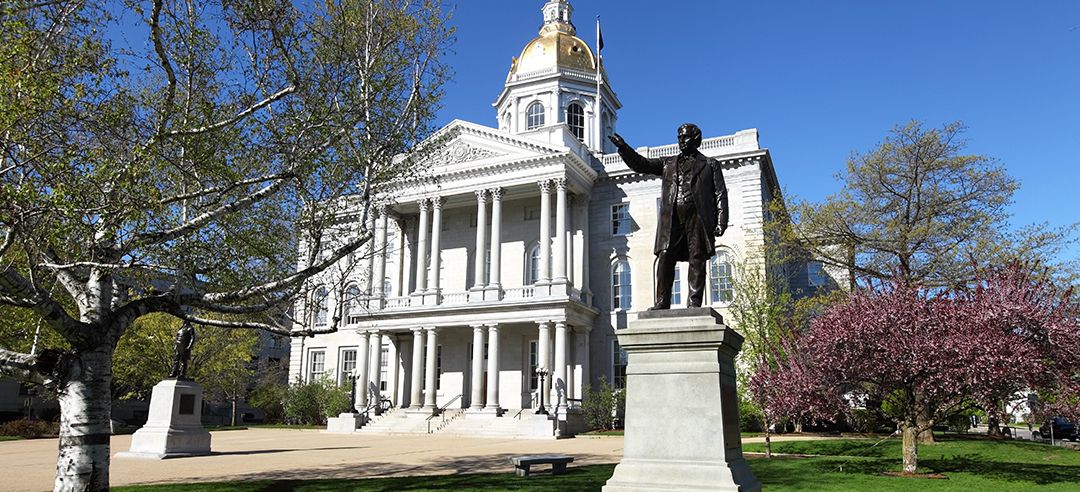Two wins and one loss
By BOB QUINN
Chief Executive Officer
The 2024 Legislative session came to an end last week with a couple of wins and one loss for private property and housing advocates.
Extension of permitting exemptions defeated
Unless otherwise stated by a town, under state law, site plans and subdivisions approved by a municipality are exempt from subsequent changes in zoning ordinances as long as “active and substantial” work begins within two years and construction is completed within five years (RSA 674:39). House Bill 1215 would have extended those time frames to give developers five years to achieve “active and substantial” work and 10 years to complete the project.
The legislation had passed both the House and Senate, but a non-germane amendment was added by the Senate, meaning both bodies would need to reconsider that legislation. Last week, the House rejected it. Opponents of the bill called the extension of time frames “radical” and that only “poorly run” developments need the extra time.
The non-germane amendment, dealing with closing of a street in Hampton for expansion of the Hampton Beach Casino, undoubtedly also contributed to the bill's demise.
Parking and residential conversions tax relief bill passes
The House and Senate have both voted to pass House Bill 1400, stating that a municipality cannot, on new residential developments, require more than 1.5 parking spaces per unit for studio and one bedroom units under 1,000 square feet that meet the requirements for workforce housing, and cannot require more than 1.5 residential parking spaces per unit for multi-family developments of 10 units or more.
The bill provides for “alternative parking solutions,” which means a proposal by an applicant to meet the parking demand created by a proposed residential use which is a substitute for meeting the on-site parking requirements prescribed by a zoning ordinance, site plan review regulation, subdivision regulation, or innovative land use control.
Alternative parking solutions means options such as: (1) an agreement for the provision of off-site parking spaces with another owner of real property during hours which the off-site parking spaces are not in use within a quarter of a mile of the proposed residential use; (2) agreement with a rideshare company to provide transportation; (3) availability of public transportation including bus service within a quarter of a mile of the proposed residential use; or (4) location in a district officially designated in a municipality's master plan, or by zoning ordinance, as having adequate walkability infrastructure.
Planning boards will now have the authority to approve residential uses with “alternative parking solutions” which may be inconsistent with the requirements of their zoning ordinance.
The bill also allows for developments which are converting from office, industrial, or commercial use to a residential use, to be eligible for the Community Revitalization Tax Relief Incentive program (79-E). The provision will expire in 2035.
The bill is now headed to the Governor’s desk for his consideration.
Tenant applications fees
House Bill 283 was signed into law by the Governor last week. The law, which goes into effect January 1, 2025, states that prior to collecting any fee as part of the rental application or renewal process, the landlord must clearly disclose, in writing to prospective tenants, the amount of the fee and the requirement for a satisfactory criminal background and credit check, if any.
If such fee is collected from an applicant but the unit is not rented to that applicant, the landlord will need to return any amount beyond the actual cost of the documented background check, credit check, and/or reasonable administrative costs to the applicant within 30 days of receipt.
Quote of the Week
“There are lots of people in the state of New Hampshire that are paying over 50 percent of their gross income in rent. It's a disastrous train wreck about to happen, if anything goes wrong in their lives.”
–Marie Poole, who manages properties and facilities for NH Easterseals. (NHPR June 14, 2023). Last month, the NH legislature killed a bill (HB 1291) to give property owners the right to build an accessory dwelling unit to accommodate aging relatives.
For more information, contact New Hampshire Realtors CEO Bob Quinn: bob@nhar.com.

